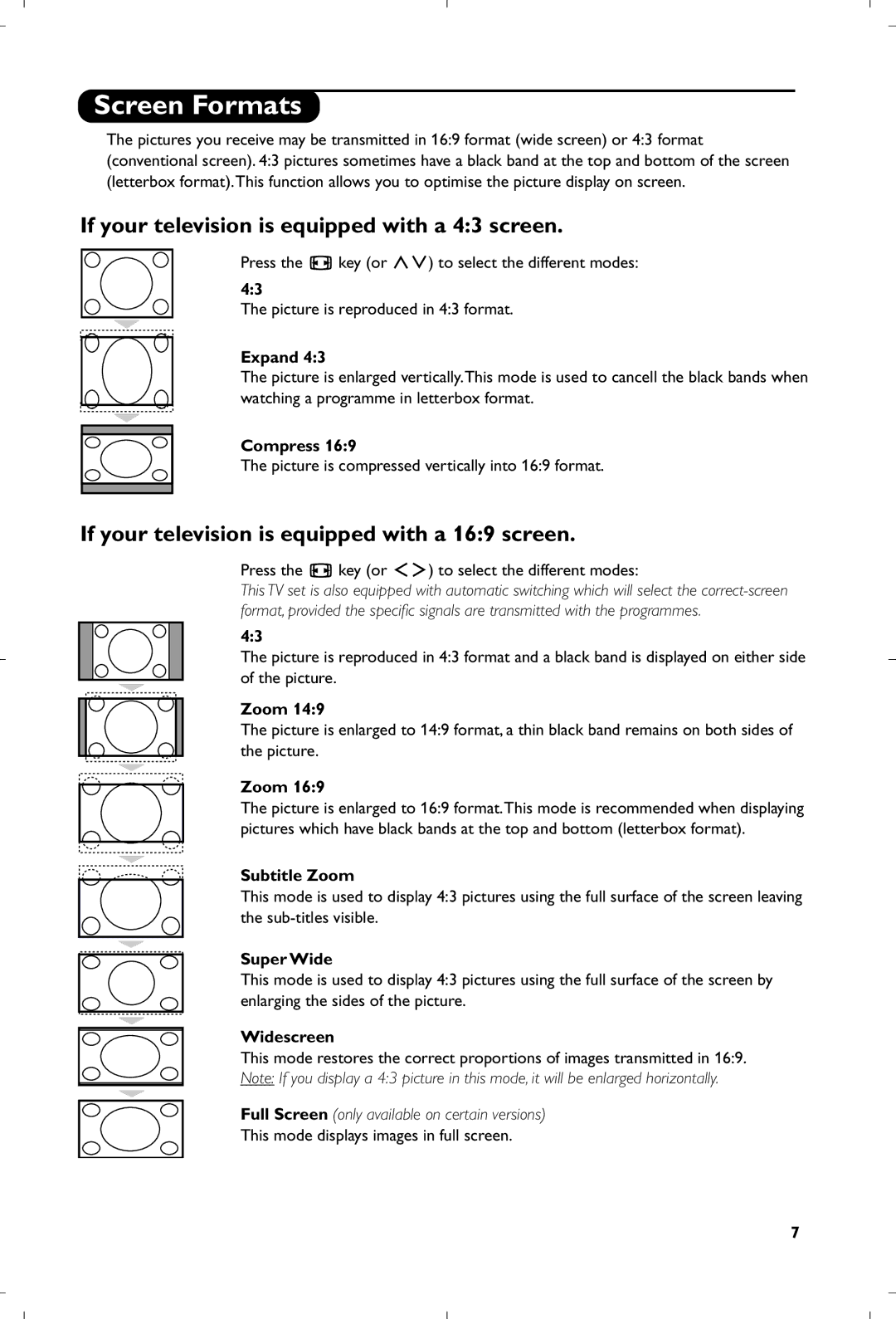
Screen Formats
The pictures you receive may be transmitted in 16:9 format (wide screen) or 4:3 format (conventional screen). 4:3 pictures sometimes have a black band at the top and bottom of the screen (letterbox format).This function allows you to optimise the picture display on screen.
If your television is equipped with a 4:3 screen.
Press the ∏ key (or <>) to select the different modes:
4:3
The picture is reproduced in 4:3 format.
Expand 4:3
The picture is enlarged vertically.This mode is used to cancell the black bands when watching a programme in letterbox format.
Compress 16:9
The picture is compressed vertically into 16:9 format.
If your television is equipped with a 16:9 screen.
Press the ∏ key (or ≤≥) to select the different modes:
This TV set is also equipped with automatic switching which will select the
4:3
The picture is reproduced in 4:3 format and a black band is displayed on either side of the picture.
Zoom 14:9
The picture is enlarged to 14:9 format, a thin black band remains on both sides of the picture.
Zoom 16:9
The picture is enlarged to 16:9 format.This mode is recommended when displaying pictures which have black bands at the top and bottom (letterbox format).
Subtitle Zoom
This mode is used to display 4:3 pictures using the full surface of the screen leaving the
Super Wide
This mode is used to display 4:3 pictures using the full surface of the screen by enlarging the sides of the picture.
Widescreen
This mode restores the correct proportions of images transmitted in 16:9.
Note: If you display a 4:3 picture in this mode, it will be enlarged horizontally.
Full Screen (only available on certain versions)
This mode displays images in full screen.
7
